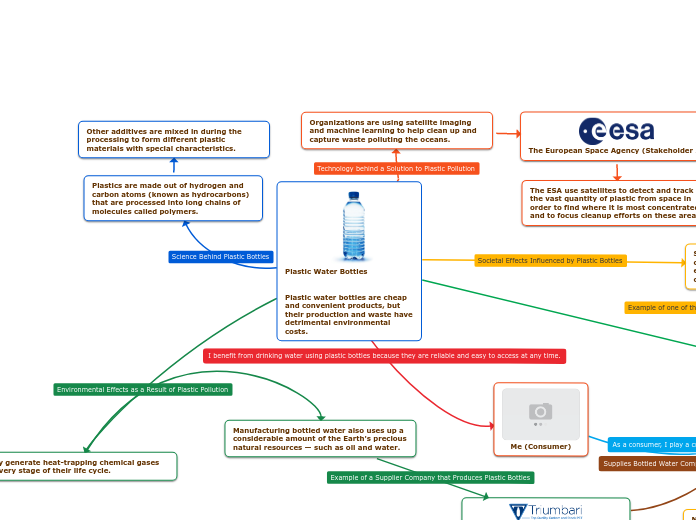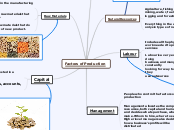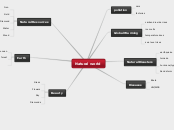Me (Consumer)
Plastic Water Bottles
Plastic water bottles are cheap and convenient products, but their production and waste have detrimental environmental costs.
They generate heat-trapping chemical gases at every stage of their life cycle.
Manufacturing bottled water also uses up a considerable amount of the Earth's precious natural resources — such as oil and water.
Triumbari Corporation (Stakeholder 3)
Several companies have been criticized for child labour and exploiting workers in third world countries.
Nestle (Stakeholder 1)
Nestle is the world’s largest producer of bottled water
They have started to develop a controversial and corrupt reputation.
Nestle drains the aquifers it controls, without any regards to sustainable usage or environmental concerns.
They believe water isn’t a universal right. In 2000, Nestle pushed for making access to drinking water from a “right” to a “need,” a defining change.
Have been pumping out 200 gallons worth of freshwater out of Michigan-water that the people of Flint desperately need.
Organizations are using satellite imaging and machine learning to help clean up and capture waste polluting the oceans.
The European Space Agency (Stakeholder 2)
The ESA use satellites to detect and track the vast quantity of plastic from space in order to find where it is most concentrated and to focus cleanup efforts on these areas.
Plastics are made out of hydrogen and carbon atoms (known as hydrocarbons) that are processed into long chains of molecules called polymers.
Other additives are mixed in during the processing to form different plastic materials with special characteristics.









